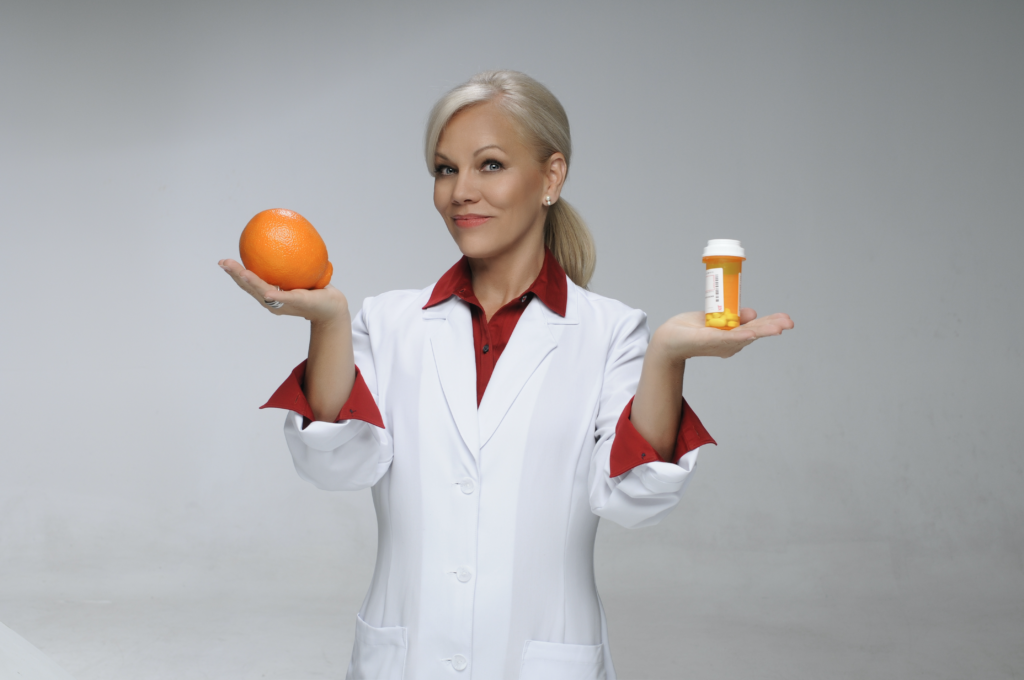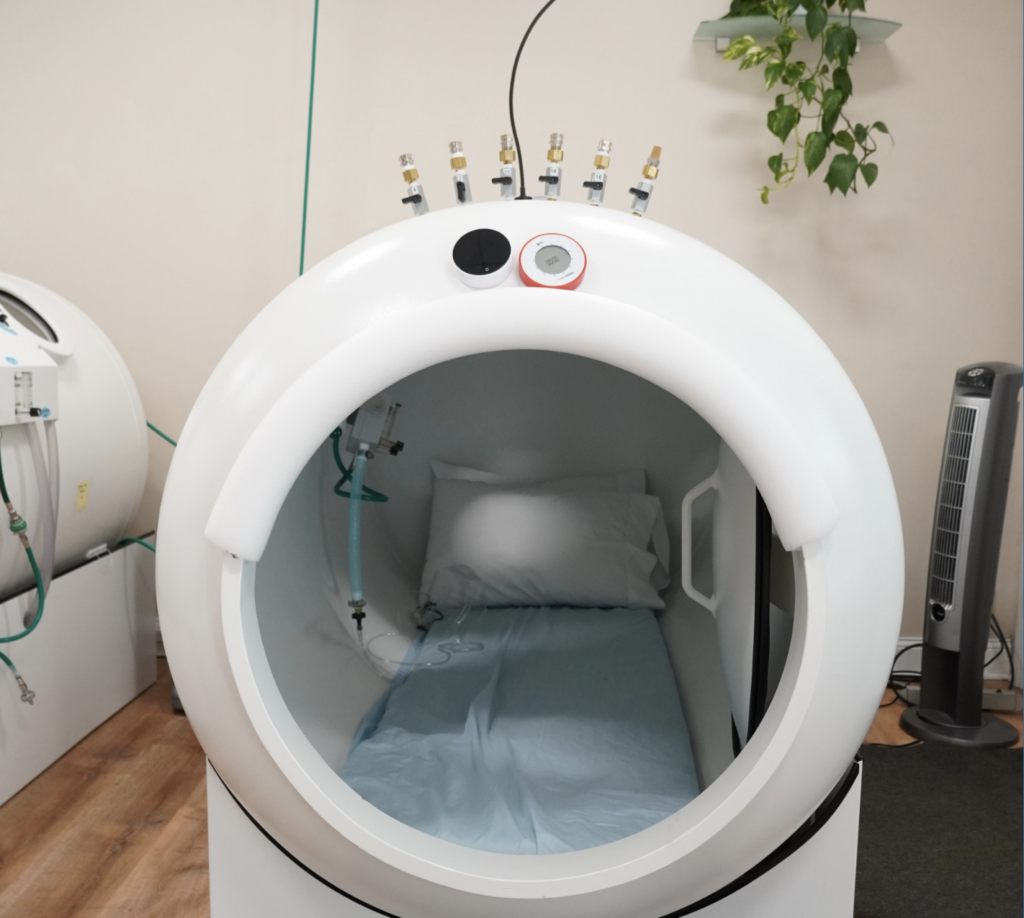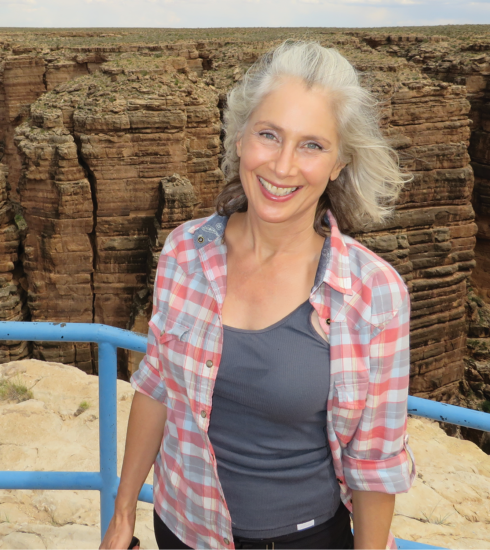The Healing Edge: A Conversation with Dr. Donese Worden on Integrative Medicine
In a world where conventional medicine often falls short, Dr. Donese Worden, an internationally renowned naturopathic physician and educator, offers a fresh perspective. With a focus on metabolic treatments for cancer and neurological diseases, Dr. Worden bridges the gap between traditional and alternative healthcare. In this interview, she shares her groundbreaking work using hyperbaric oxygen therapy and ketogenic diets to treat cancer and neurologic conditions, insights on the wellness industry, and the future of integrative medicine.

Q: Can you tell us a little about your background and what led you to focus on integrative medicine?
Dr. Worden: I’m a naturopathic medical doctor, which means I sit between traditional and alternative systems of medicine. Early on, I realized that the conventional approach wasn’t working well for many patients, particularly those with cancer and neurological diseases. Over the past 12 to 13 years, I’ve seen more and more patients fall through the cracks. This led me to research new therapies, particularly those advocated by Dr. Thomas Seyfried, who approaches cancer as a mitochondrial metabolic disease. The more I learned about natural therapies such as hyperbaric oxygen and ketogenic diets, the more I saw their potential. These treatments were making a difference where traditional methods weren’t enough. So, I committed myself to finding ways to integrate these innovative approaches into patient care, always focusing on what works best for the individual.
Q: You’re known for your work in metabolic treatments for cancer and neurologic diseases. Can you explain what that entails?
Dr. Worden: The standard of care for cancer is largely based on targeting DNA mutations, but what many don’t realize is that less than 10% of cancers are genetic. The real culprit in the other 90% is mitochondrial damage. The mitochondria are the powerhouses of our cells. When they become damaged, they stop generating energy efficiently, leading to a cascade of cellular problems, including cancer. So, rather than focusing solely on DNA—which is what traditional treatments like chemotherapy and radiation target—we focus on restoring mitochondrial function using therapies like ketogenic diets and hyperbaric oxygen. These treatments optimize mitochondrial function, helping not only with cancer but also neurological diseases. By focusing on the metabolic aspect of disease, we are addressing the root cause rather than just treating the symptoms.
Q: Let’s talk about hyperbaric oxygen therapy. How does it help with cancer and neurological diseases like Alzheimer’s or Parkinson’s?
Dr. Worden: Hyperbaric oxygen therapy (HBOT) is a medical treatment that uses 100% oxygen at a higher-than-normal atmospheric pressure. Increasing oxygen in cancer cells makes them more susceptible to chemotherapy and radiation therapy. Oxygen also plays a critical role in killing cancer cells—a process called apoptosis—and it can stimulate the production and activity of immune cells, which can directly attack cancer cells.
When it comes to neurologic conditions, HBOT has been a game-changer. Hundreds of studies show that it increases reparative stem cells by up to eight and a half times. We’ve seen amazing results in treating traumatic brain injuries, strokes, and diseases like ALS.
What makes HBOT so powerful is its ability to deliver oxygen to tissues that normally wouldn’t receive it. The pressurized environment allows oxygen to dissolve more effectively in the blood, reaching damaged tissues and supporting the brain’s natural repair mechanisms. This is particularly exciting for conditions like Alzheimer’s and Parkinson’s, where we see a progressive loss of function. HBOT can help slow that decline and even restore some lost function in many cases. For example, we used to think that once a stroke caused permanent brain damage, but with HBOT, we’re seeing patients regain function even years after their stroke. It’s remarkable and it is changing the way we think about brain health.

Q: How does the ketogenic diet fit into your treatment protocols?**
Dr. Worden: The ketogenic diet is an important part of my approach, often used in combination with HBOT. By reducing carbohydrates and increasing fats, we force the body to produce ketones, which are a cleaner, more efficient fuel source than glucose. Cancer cells can’t use ketones for fuel, so we’re essentially starving them while still nourishing the rest of the body. I usually recommend a few months of strict keto for patients, but for those without an active disease, cycling in and out of keto can also be beneficial.
One of the misconceptions about the ketogenic diet is that it’s only about weight loss. While weight loss can be a side benefit, the real power of keto lies in its ability to shift the body’s metabolism. When the body is in ketosis, it’s burning fat for energy instead of glucose. This is critical for cancer patients because cancer cells thrive on glucose. By depriving them of their fuel source, we can slow their growth and, in some cases, reverse it.
The same principles apply to neurological conditions. The brain loves ketones. Patients with Alzheimer’s or Parkinson’s often experience improved cognitive function and memory when they adopt a ketogenic diet. It’s not just about managing symptoms; it’s about giving the brain the fuel it needs to repair itself.
Q: The wellness industry has exploded in recent years, but there’s also been a lot of criticism. How do you navigate the good and the bad in this space?
Dr. Worden: You’re right—the wellness industry has really taken off, but not all of it is good. I’ve been inside the industry for a long time and have seen both sides. I always insist on scientific validation. For example, any product I use or recommend must come with a certificate of analysis from third-party testing. There are too many companies making wild claims without proof. That’s why I co-founded a research company, called “Prove It.” We work with companies that want to do things right and need help navigating the regulations set by the FDA and FTC. These regulatory bodies are starting to crack down on false claims, and I think it’s a positive step forward for the industry.
Q: How can consumers protect themselves from misleading claims?
Dr. Worden: The first thing I always tell people is to ask for proof. If a company is making claims about a product, they should be able to back it up with real scientific evidence. Look for products that have been third-party tested. It’s up to consumers to be discerning. Also, don’t fall for the “more is better” trap when it comes to supplements. A lot of people take a cabinet full of supplements they don’t need, which can actually do more harm than good. The best approach is a thoughtful, scientific one.
There’s also a growing trend of influencers promoting health products without any real knowledge or expertise. Consumers need to be careful and not just take advice from someone because they have a large following. Look for people with credentials who are actually trained in the science of health and wellness. And always remember: if it sounds too good to be true, it probably is. Health is a long game, not a quick fix.
Q: How do you see the future of integrative medicine and where is the wellness industry headed?
Dr. Worden:: I’m optimistic about the future. While there are certainly bad actors in the wellness space, there’s also a lot of positive change. Younger generations, in particular, are asking more questions and pushing back against a system that often over-relies on pharmaceuticals. They want to know if there are lifestyle changes that can help them avoid medication. I also think the FDA and FTC stepping in to regulate the supplement industry is a good thing—it’s forcing companies to be more transparent. Overall, I think we’re moving toward a healthcare system that embraces both conventional and alternative approaches in a more balanced, scientifically validated way. I also see more collaboration between traditional and alternative medicine. We’re already seeing it in cancer care, where naturopaths like myself are working alongside oncologists to improve outcomes. The future of medicine is integrative, and I’m excited to be part of that shift.
For more information about Dr. Worden, visit DrWorden.com or contact her clinic in Gilbert, Arizona, at 480-588-2233 or info@drworden.com.
Listen to the full podcast episode here:





